Configuration Guide of the D2000 System
To start the configuration guide, click on the file D2Install.exe in the directory that has been created when creating a new instance.
The structure of the configuration tool is similar to the installer. You may use the "Next" and "Back" buttons when you go through the configuration dialog windows. The "Install" button runs the final configuration.
At first, you have to specify the input configuration file in the initial window. You may choose from two files - the default configuration file (D2install.xml) or your own file.
The default configuration file D2install.xml contains the default settings of the system. This file is used when choosing the option "Default configuration".
The configuration tool enables both manual and automatic configuration. When you click on the "Next" button, the manual configuration will be done. It means the user is guided through all the necessary dialogs in which he may specify the system settings.
The "Install" button starts the automatic configuration according to the chosen configuration. However, with this method of configuration, the user does not have the option to change the configuration parameters. These will be used exclusively according to the selected configuration file.
The user has three options:
- Use the default configuration (D2install.xml) and manually pass the configuration guide.
- Specify their own configuration file and manually pass the configuration guide.
- Specify their own configuration file and automatically configure the D2000 System without the guide.
When selecting the automatic configuration, all the steps that configure the system are skipped and the final configuration is started (see the section "Final configuration").
In the manual configuration, the user will be guided through all the following steps.
Manual configuration
In the installation guide you could choose one of the following types of installation:
- Server
- Client:
- Basic
- Developer
- Remote
Each type of installation requires different system settings. Therefore, the installation guide is different for each installation. The steps of the configuration depend on the type of installation and on checked parameters in individual dialogs.
Each rectangle represents one or more configuration dialogs for the setting of system parameters. The configuration proceeds according to the arrows. The upper point represents the start position, i.e. the configuration dialog in which you have to choose a type of installation. The endpoint represents a final configuration as per the settings.
Configuration guide
1. Basic settings (all types of installation)
In this dialog window, you define the mask of the network and the path to the basic directories necessary for the D2000 System operation:
- Application – the directory to which all files necessary for the application will be stored.
- Logging – the directory that will contain information about the activity of processes.
This dialog allows setting a type of license used in the D2000 System.
Type of license
Allows to choose one of the following items:
- Demo
- Basic
- Standard
- Enterprise
License file
If the user enters a license file, it is copied to the correct location. The choice of a license file is not mandatory. The choice of a license file is optional, in the case of the Demo license type it is not accessible at all.
2. Server settings (Server)
Support programs
The dialog is used to set up the installation of support programs necessary for running some parts of the D2000 system. If the option to install a program is checked, the program will be installed after the configuration is completed. If an item is checked and disabled, it means that the program is present on your computer and no further installation is required.
Use hardware keys / Use software keys
Specifies the type of license keys that will be used for authentication in the D2000 System.
3. Connection settings (Client)
Requires the setting of connection to the D2000 server. This is either an IP/Computer name or a name of the redundant group. This setting will be used for all configured clients.
4. Client settings (Client)
The dialog box allows you to set up the installation of support programs for client processes, namely the installation of hardware key support.
5. Creating the shortcuts (Client)
This dialog box sets the presence and location of links to important D2000 processes. All links that have the "Add link" check box selected will be added to the resulting configuration. The link location setting is applied to all clients that have this parameter checked.
If no parameter is selected under the "Location" or "Add link" section, no link will be added to the computer.
A double click on a particular client process opens a dialog window in which the user may change its relative location ("Name" item) and the start parameters ("Parameters" item).
6. Remote client settings (Remote client)
The dialog allows you to configure remote D2000 processes. A checked box in the "Install" column means that the process will be created.
Double-clicking on the remote client line opens a configuration dialog in which its parameters can be set.
The exact parameters of the remote client are described in the D2000 system documentation.
Confirming a configuration
Before the final configuration, you must confirm the configuration.
In this dialog box, the user has the option to run the configured application (if he decided to create it), or save the resulting configuration file for further use.
The resulting configuration is saved in each case (whether the user decides to save or not) to the D2Install folder in the destination directory of the instance installation.
Final configuration
The final configuration process is automatic. A dialog box appears, which informs the user step by step about each configuration action that is performed. Either the success information or failure of the action is displayed.
When the configuration is complete, the Complete button is available to close the configuration tool. In this step, the D2000 instance is installed, configured, and ready to use.
Related pages:
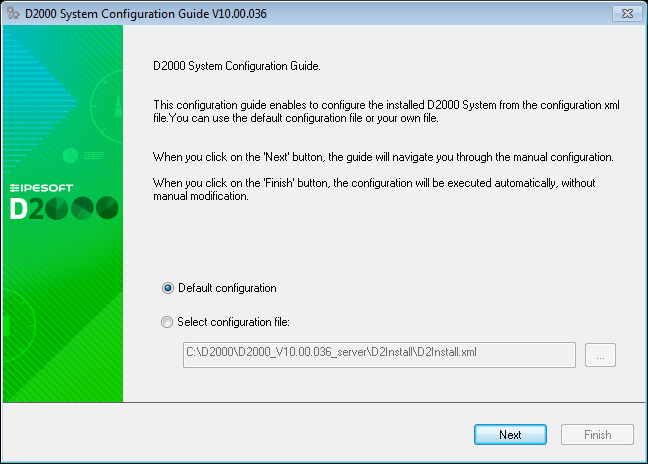
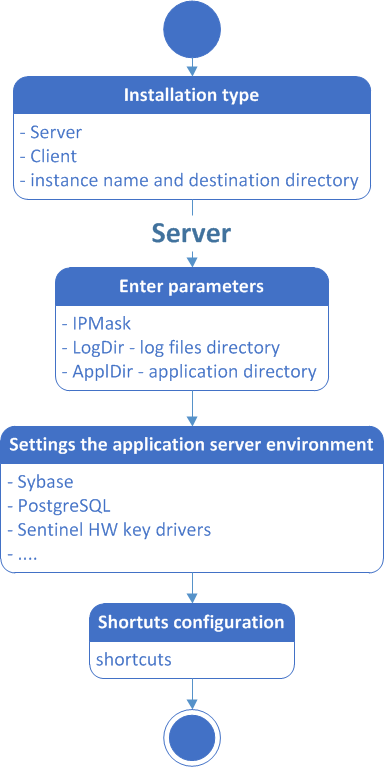
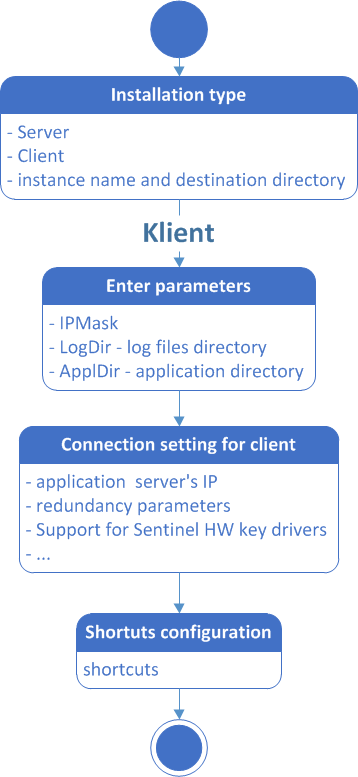
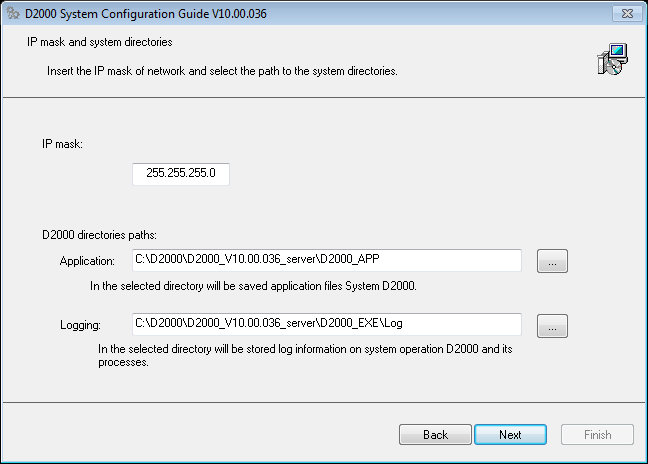
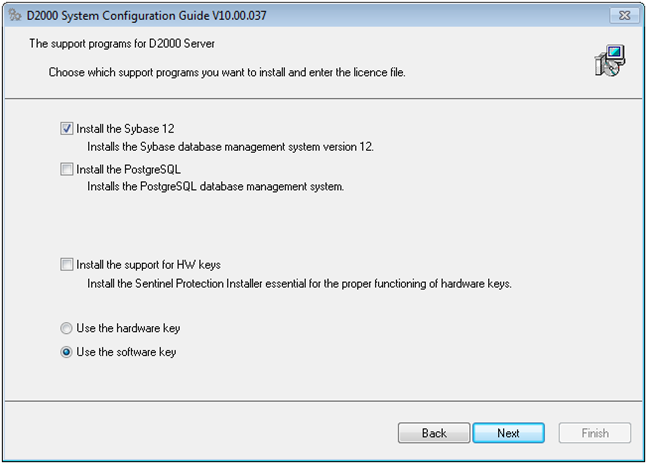
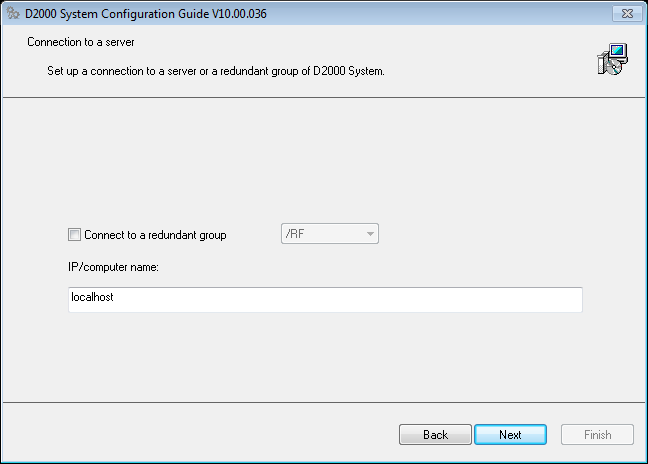
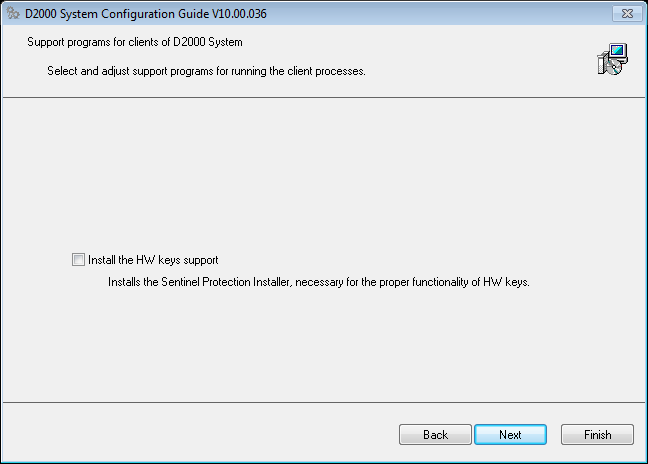
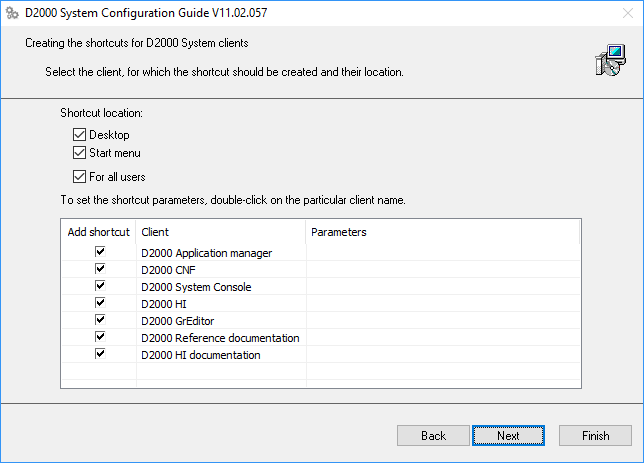
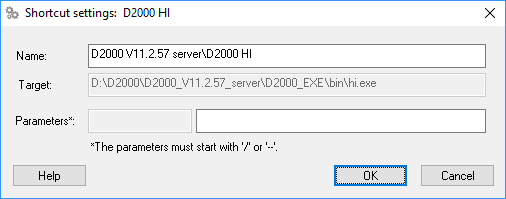
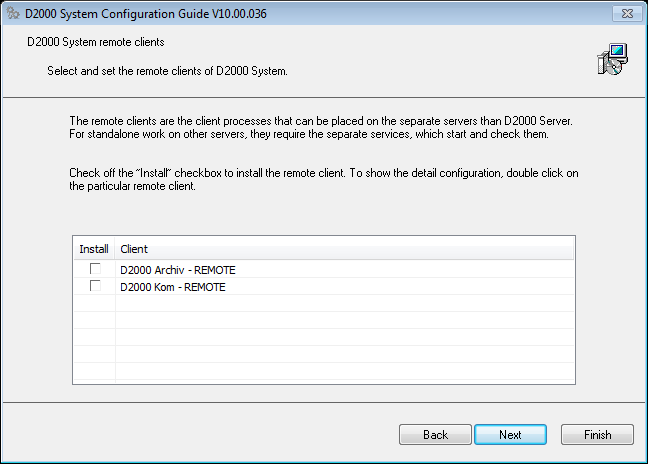
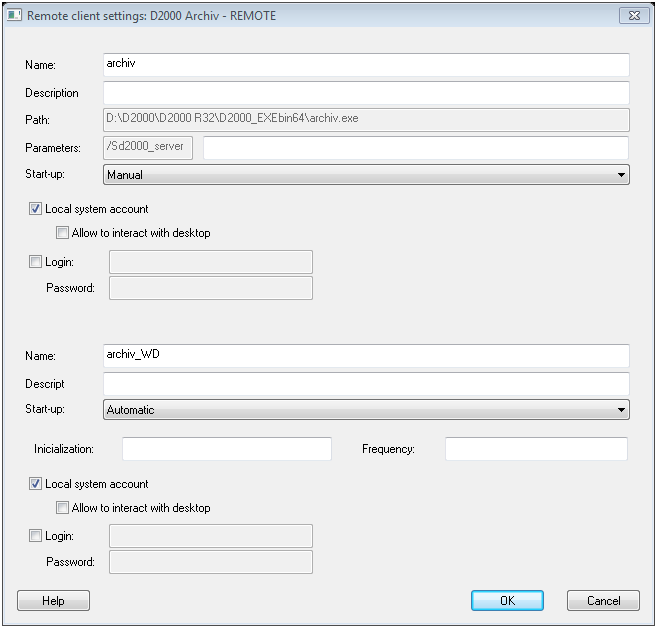
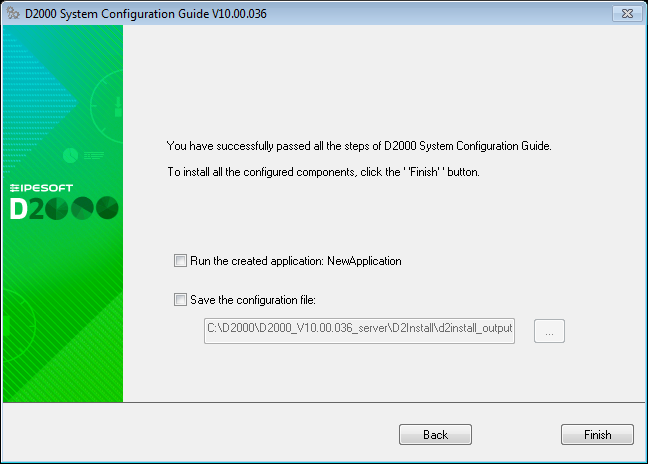
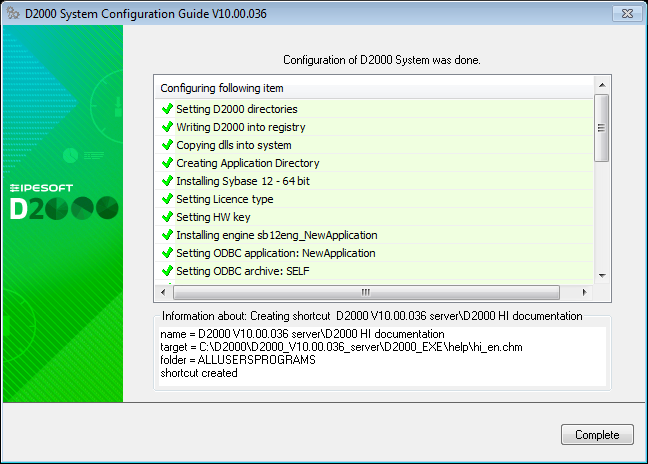
0 komentárov